“Racism has been around for a long time, it didn’t start with us and it won’t finish with us, but we can fight to end it and solve everything happening at the moment in football,” says Mohamed Diaoune. It’s 20:30 on an early-March evening on the football pitch in the outskirts of Milan where the St Ambroeus team has just finished training, and Mohamed and the other players are getting ready to head back to the centers they call home.
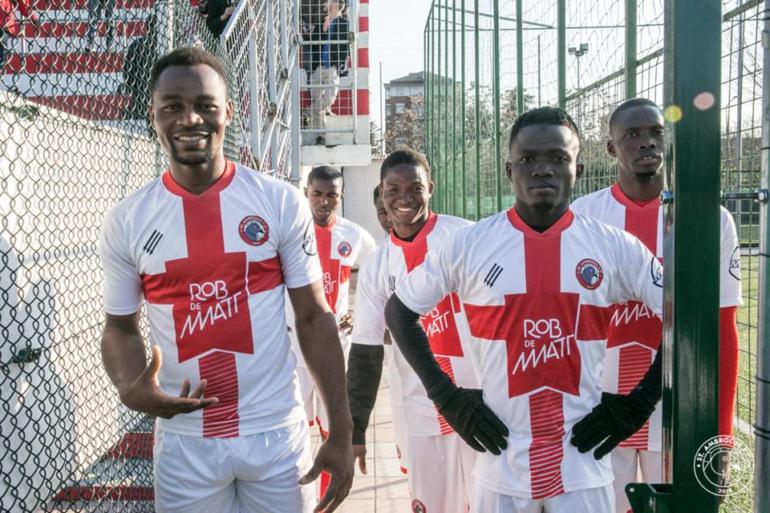
St Ambroeus players before a game. /St Ambroeus/Facebook
‘A project of inclusion and redemption’
Milan’s all-refugees football team was born in 2018 from the merging of two pre-existing teams playing in Milan’s migrant camps – the Corelli Boys and the Black Panthers. St Ambroeus, which has more than 30 players of as many as 14 different nationalities, represents a step up from its origins: it’s the first team to register with the Italian Football Federation (FIGC), the governing body of football in Italy. But it wasn’t an easy endeavor.
“There are rules of the Federation that, compared with other federations, don’t allow us, for example, to register all players for bureaucratic reasons, and this is a big limitation,” explains Gian Carlo Duina, St Ambroeus’s co-founder and secretary. “But we’re aware of this, and we’re part of this federation also to change it and put pressure on it so as to make football accessible to everyone.”
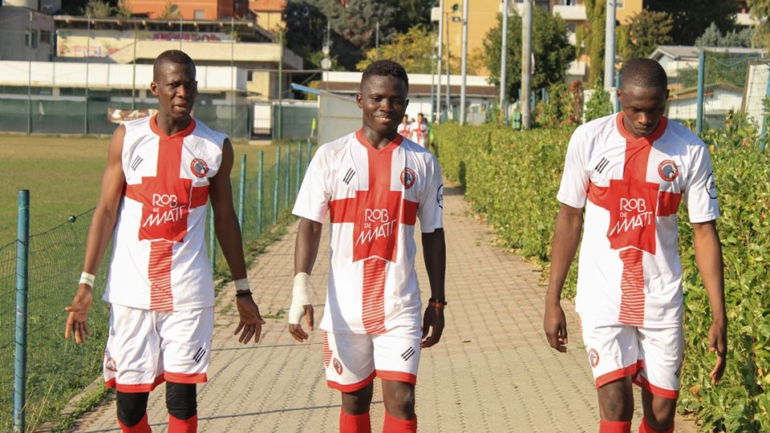
St Ambroeus’s players heading to the football pitch, ready for a game. /St Ambroeus/Facebook
The registration fee for the FIGC, which cost more than $2,200 (€2,000), was funded by the support of more than 150 donation from a crowdfunding drive. Then came the selection of the players and the choice of a name, St Ambroeus – the patron of the city.
“We wanted it to be strongly related to Milan, because we consider ourselves a team made by boys from Milan, independently from the color of the skin, the country of origin, or the native language,” says Duina. “These boys are from Milan because here they live, they work, they study, and Milan is their city.”
Armand comes from Cameroon and arrived in Italy three years ago, but when asked where he’s from he answers immediately “Milan.”
“Someone like me must thank Italians because they’ve opened their doors to us,” he says. “We’ve come here and we have the opportunity to play football, do whatever we want. But it depends on the person and their will, you must have patience. We’ve understood that here in Italy you need a lot of will, and a lot patience.”
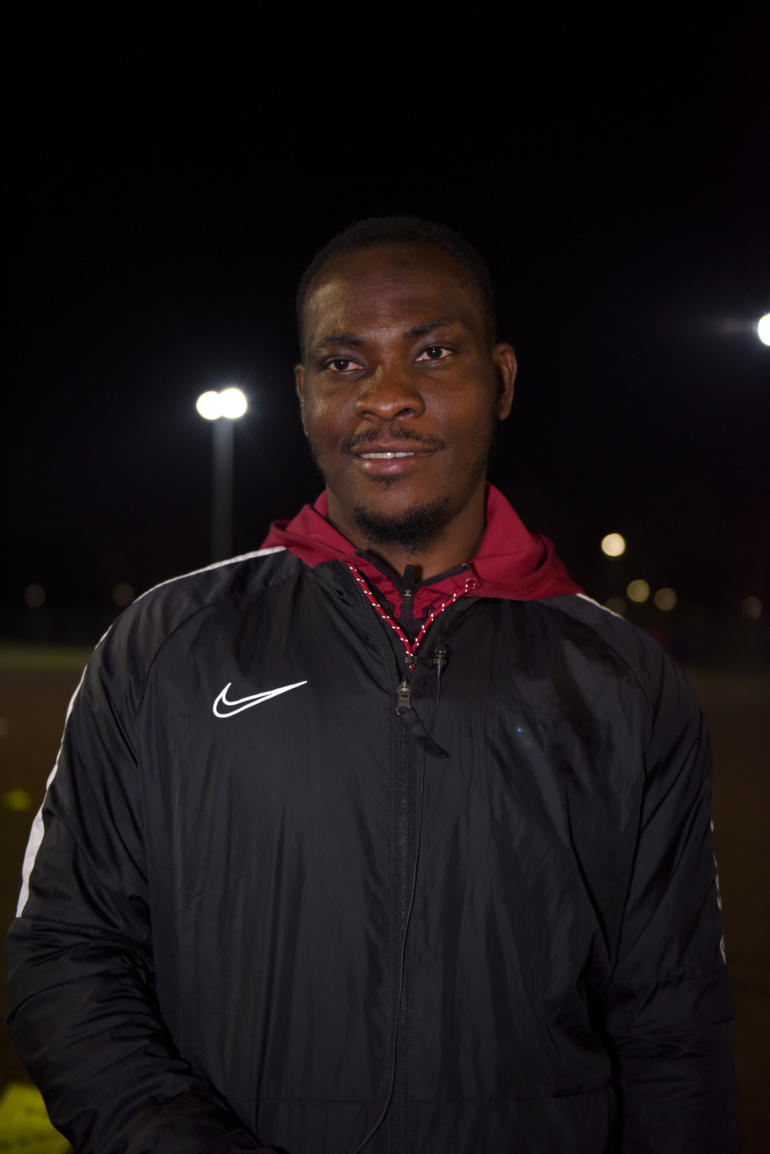
Armand played football in Cameroon when he was younger. ‘But in my country I played at a higher level than here,’ he says. He wants the St Ambroeus team to grow: ‘Next year we should work even more.’ /Giulia Carbonaro/CGTN
Fighting racism on the football pitch
At a time when millions of people across the globe are rising together against racism, with protests following the killing of George Floyd in Minnesota resonating across the world, a small reality such as Milan’s all-refugees football team St Ambroeus is poignant.
“We live some [episodes of racism] every now and then when we have a game,” explains Armand. “Even if you just put a hand out, they tell you it’s a foul even if it wasn’t. So, from the referee you feel a bit hurt and you think it’s racist. For me it is, I don’t know about others.”
And in terms of exceptions to the norm, St Ambroeus has one more to count to its advantage: its own ultras – hardcore fans. In the football world, the overwhelming majority of ultras shows affiliations to neo-fascist groups and far-right politics, but St Ambroeus’s “Armata Pirata 161” is strongly anti-fascist.
“We follow this project because it is admirable, and we care to say we’re anti-fascists, because we come from that journey,” explains Stefano. “When we started, we didn’t know any of the guys from the camps, we’ve got to know them with time, now there’s a relationship.”
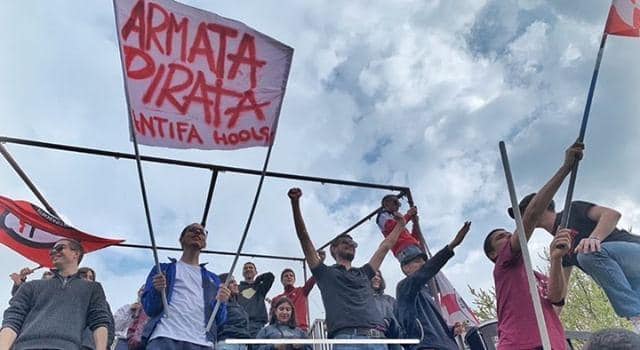
The Armata Pirata 161 ultras are proudly anti-fascist. /St Ambroeus/Facebook
In the background of this project of inclusion, there is the reality of a rise in far-right politics in Italy and a global resurgence of fascism, which was reflected in some behavior in football stadiums last season.
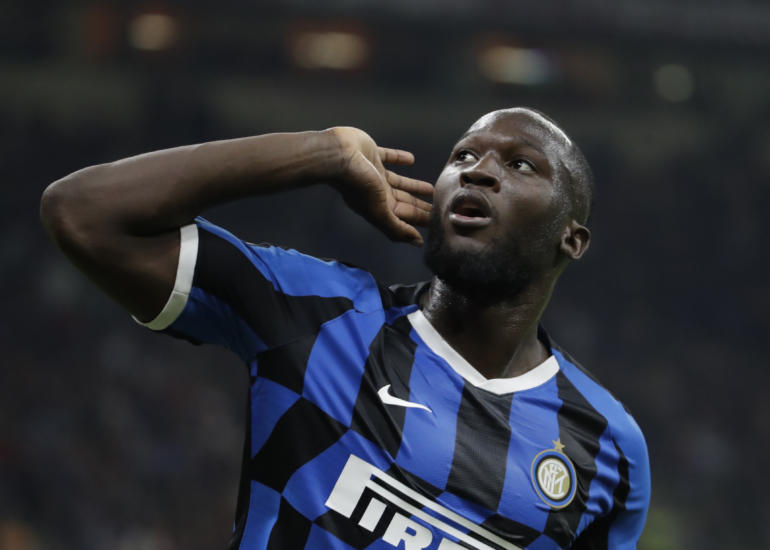
In September 2019, Inter Milan’s Belgian striker Romelu Lukaku was taunted by opposing fans in Cagliari with monkey noises. /AP/Luca Bruno
“Football is certainly a mirror of society, in all its effects,” says Duina. “We know well that the game in itself tends to spark uncontrolled reactions, so the presence of racism in the stadium is a reflection of the growth of racist episodes within society. The stadium is not disconnected from the public square, if we want to put it this way.”
A report made by the Associazione Italiana Calciatori showed that, while 66 percent of racist episodes in football happen in stadiums and 34 percent on the pitch, 70 percent of the latter takes place in the youth divisions.
Duina, who works for Italian non-governmental organization Altropallone to promote multiculturalism and integration through football, strongly believes the change must start from education. “We think that the solution is not closing the stadiums or punishing the offenders, but to start with education at its foundation, from presenting an idea of sport that’s inclusive and against any kind of racism to children.”
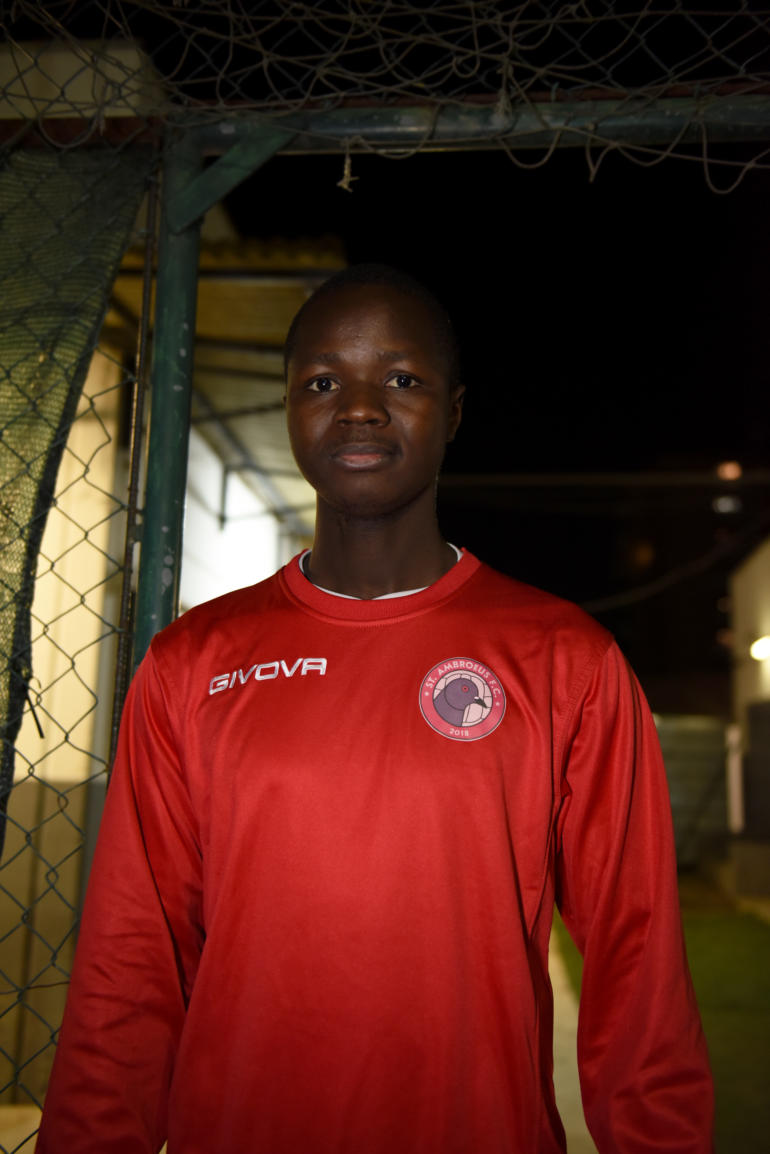
Mohamed says racism in football isn’t only an Italian problem: ‘It’s in other countries, too. /Giulia Carbonaro/CGTN
“I live in Milan, I’m from Milan, too, now”
Milan was the perfect stage for this project. It’s a diverse and dynamic metropolis, the first city in Italy for numerous migrants. “Milan is a city with a lot of different realities, and the majority of these welcomed us with extreme positivity and great admiration and curiosity for this team,” says Duina. “We also unfortunately witnessed some unpleasant episodes but they didn’t discourage us, they’re a sign that what we do is needed.”
When it came to choosing a logo for the team, the founders thought of an eagle, a lion, or a panther Italian Football Federation (FIGC) but in the end they decided on a pigeon. “It’s a symbol of Milan and also a bird that travels – a migrant like our boys,” says Duina.
For many of the St Ambroeus players, the journey to Italy was difficult and traumatic. Many have been rescued at sea and the process of integration once in the country has been long and full of challenges.
“For the boys seeking asylum and living in the migrant camps, without being able to work, having a lot of free time, football is a way to find the freedom they’re looking for, a way to express themselves, enjoy themselves, and meet new people,” says Duina.
Mohamed is 22 and has been in Italy for almost four years. He comes from Senegal originally, where he started playing football as a child, but he now lives in Monza, a city 15 kilometers from Milan, where he plays football in the St Ambroeus team.
“I feel great with my friends, with my coach, and that’s the most important thing for me,” he says. “Sometimes there’s racism – playing with your adversaries, it happens. But the most important thing between us is that we get along, that’s the most important.”
 CGTN America
CGTN America